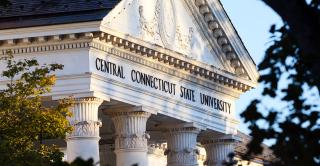
As part of the Office of Equity and Inclusion, we are expanding and diversifying our trainings to reflect issues of intersectionality, implicit bias and racial justice, as well as to offer help with pedagogical strategies, understanding LGBT culture and history, navigating legal and legislative concerns, and much more.
The need for these trainings is tremendous. For LGBTQ individuals, there is often no easy way to identify those who might be supportive to them. Many in the LGBT community experience isolation and loneliness. Even locating basic information can become risky and logistically difficult when there are few networks, directories and resources. Therefore, the more that faculty, departments, offices, cultural centers and schools take part in LGBT Center trainings the more educated and empathic our campus will become.
The Center offers a variety of trainings to address particular questions, needs or concerns:
Safe Zone Ally Training
Our basic training (also called Safe Zone training), this program provides an introduction to LGBTQ issues and resources, both here at Central and beyond. Topics discussed include the wide spectrum of LGBTQ identities, the importance of using preferred pronouns, and the particular policies and resources available here at Central. The program will also touch on intersectionality, implicit bias, racial justice, pedagogical strategies, LGBTQ culture and history, legal and legislative issues, but for a more in-depth workshop on these topics, we suggest you consider one of our more specialized programs, listed below.
Trans & Gender Non-binary Issues
This program explores the particular issues faced by our trans and nonbinary campus community. We look at gender-neutral services available on campus and the importance of pronoun awareness. We offer strategies for the campus to become allies of this community. A deeper understanding of thinking beyond the gender binary is the goal.
Bisexual Identity / Biphobia / Pansexuality
This program considers the particular issues faced by our bisexual and pansexual community, which often faces discrimination and misunderstanding from both the LGT and straight communities. A deeper understanding of thinking beyond the gender binary is the goal.
Lesbians' / Gay Women's Issues
This program explores the particular issues faced by lesbians and gay women. We look at the harm caused by gender-exclusive language and consider the ways sexism and misogyny can compound discrimination.
Gay Men's Issues
This program explores the particular issues faced by gay men in a culture of toxic masculinity. Young gay men often express a sense of isolation. We consider ways men can healthily connect with other men, and challenge the sexist, homophobic, racist and transphobic lessons they have been taught.
Intersectionality & Racial Justice
This program explores the idea that no one person has only one identity. We look at the pressure individuals often face to prioritize one identity over the other. We also consider the idea that intersectionality means that racial issues are queer issues, and vice versa.
LGBT History and Culture (Contributions of LGBTQ People)
This program looks at ways LGBTQ people and experiences have impacted our world and our way of seeing the world, from the Harlem Renaissance to today.
Living With HIV: Challenges and Choices
This program reminds us that AIDS is not over, especially not among young people of color. We consider the rates of new rates infections among LGBTQ youth (and others) while devising strategies for our campus to provide the necessary information and resources to those in need.


